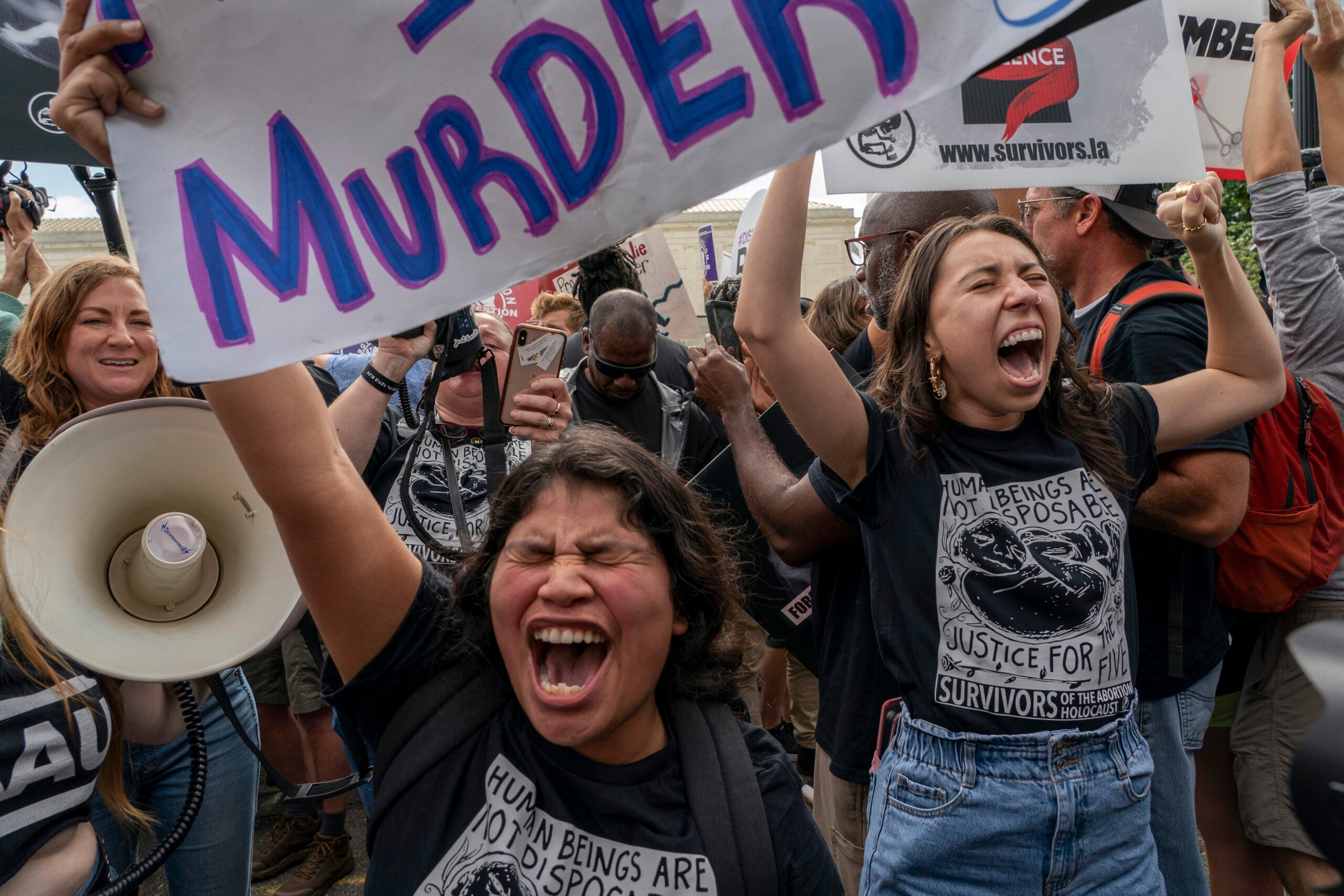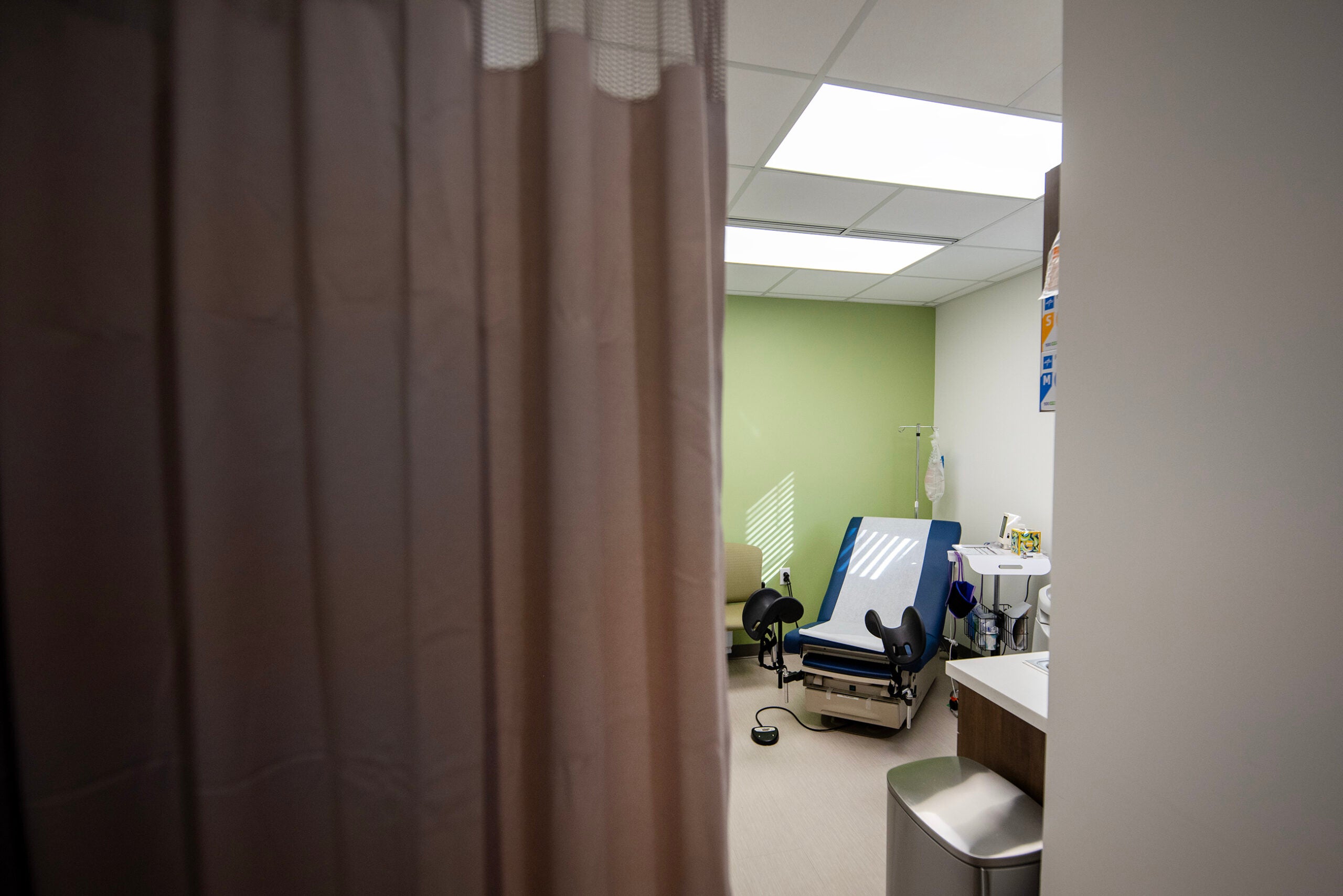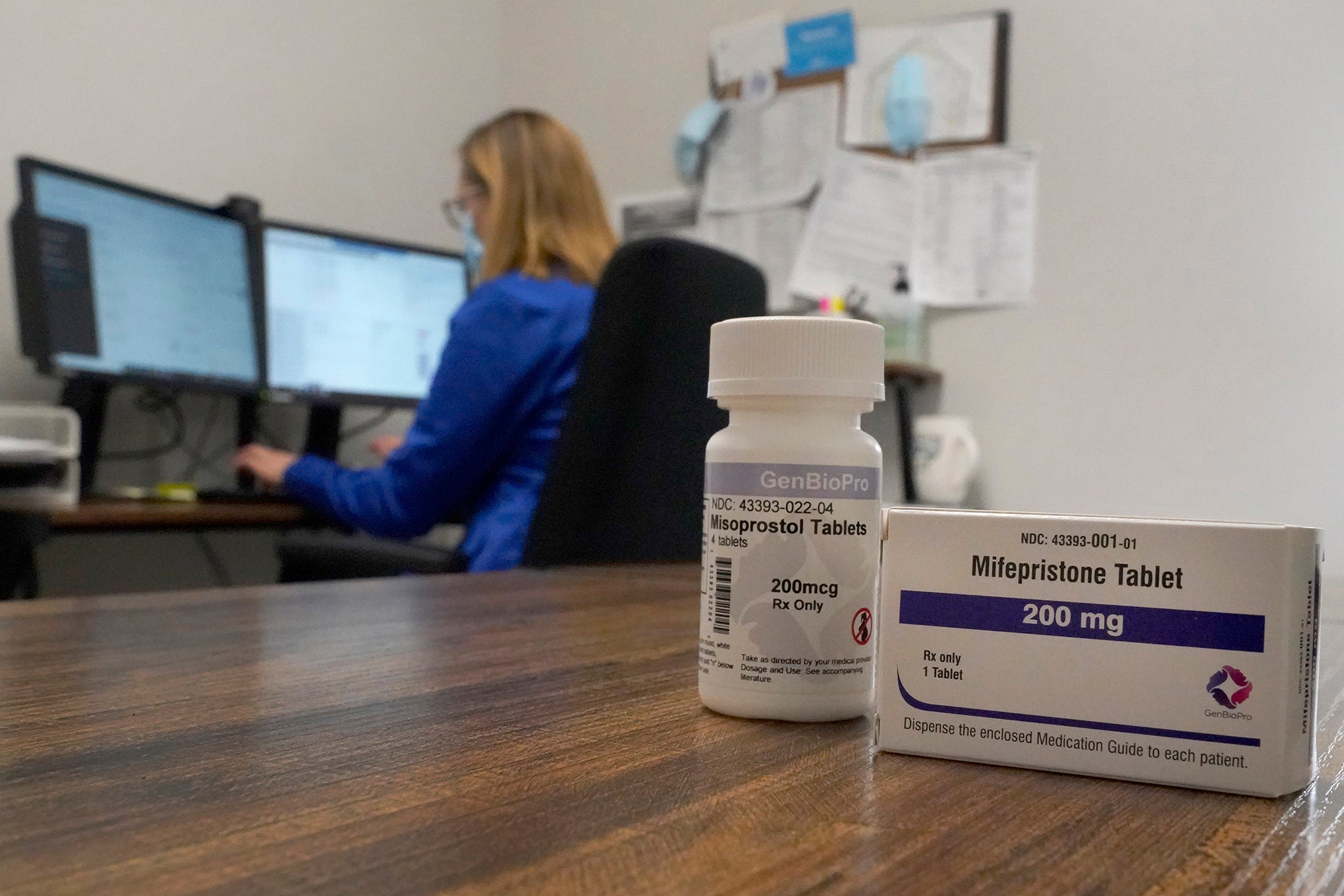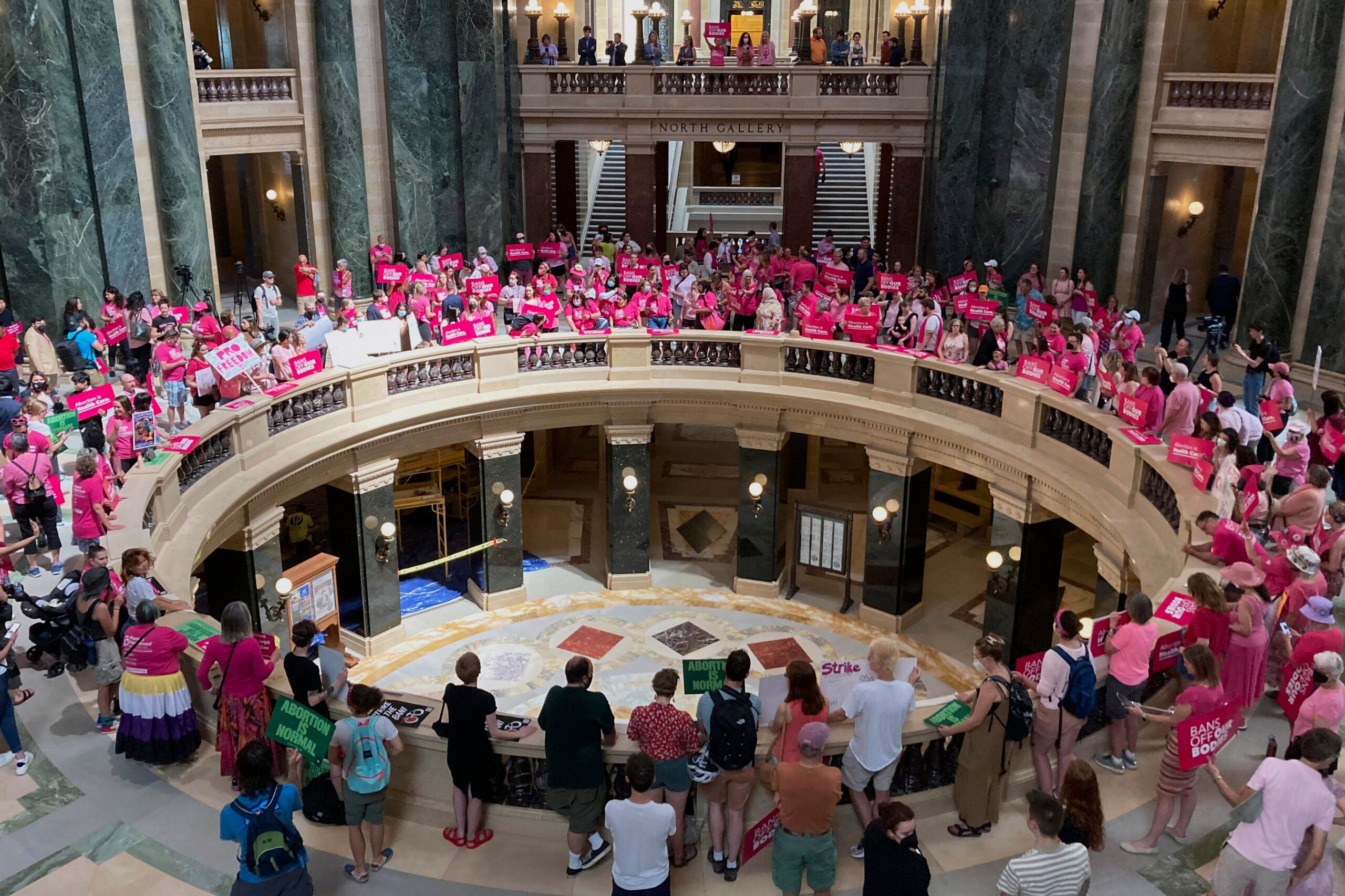Nearly half of states have laws that use fetal personhood language, according to abortion rights group Pregnancy Justice. These laws aren’t limited to states where abortion is severely restricted or outlawed; purple and blue states where abortion is legal, like Wisconsin, also have similar laws on the books.
Fetal personhood is a concept that designates human fetuses as entities with legal rights.
“One of the great questions coming after Dobbs is whether those laws will become enforceable,” said Mary Ziegler, an expert on the history of the abortion debate in the U.S. Dobbs is the 2022 Supreme Court decision that ended the constitutional right to an abortion.
News with a little more humanity
WPR’s “Wisconsin Today” newsletter keeps you connected to the state you love without feeling overwhelmed. No paywall. No agenda. No corporate filter.
Ziegler, a professor at the University of California-Davis School of Law, recently spoke to WPR’s “Wisconsin Today” about her new book, “Personhood: The New Civil War over Reproduction.”
Wisconsin’s establishment of fetal personhood is buried in a law on general appropriations that prohibits the use of public funds to subsidize abortions. It reads, in part, “‘Abortion’ means the intentional destruction of the life of an unborn child, and ‘unborn child’ means a human being from the time of conception until it is born alive.”
“When [Roe v. Wade] was on the books, a lot of states like Wisconsin passed laws that recognize some sort of fetal right,” Ziegler said.
Because liberals control the Wisconsin Supreme Court and governor’s office, Ziegler said it’s unlikely that the state’s establishment of fetal personhood will be enforced any time soon.
“Wisconsin isn’t going to be ground zero for fetal rights. Where I think you may see fetal personhood show up in Wisconsin is in these kinds of more incremental proposals coming from the Legislature,” Ziegler said.
She also said that Wisconsin anti-abortion groups could make cases to the federal courts surrounding issues like in vitro fertilization, or IVF, that are happening elsewhere in the country.
On “Wisconsin Today,” Ziegler explained the history of the anti-abortion movement’s push for fetal personhood and what could be next for abortion access and IVF across the country.
The following has been edited for clarity and brevity.
Rob Ferrett: Post-Dobbs, is this idea of fetal personhood driving a lot of what we’re seeing from groups opposed to abortion?
Mary Ziegler: Absolutely. This idea of fetal personhood was always sort of the endgame for abortion opponents; it wasn’t to let each state make its own decision. It isn’t something I think that most anti-abortion leaders think is going to succeed imminently. It’s kind of the next big goal.
So if you think of the past half-century as being driven by the effort to get rid of Roe v. Wade, the next half-century, I think, is going to be driving at this idea of fetal rights, even as we see other pitch battles over things like abortion and IVF.
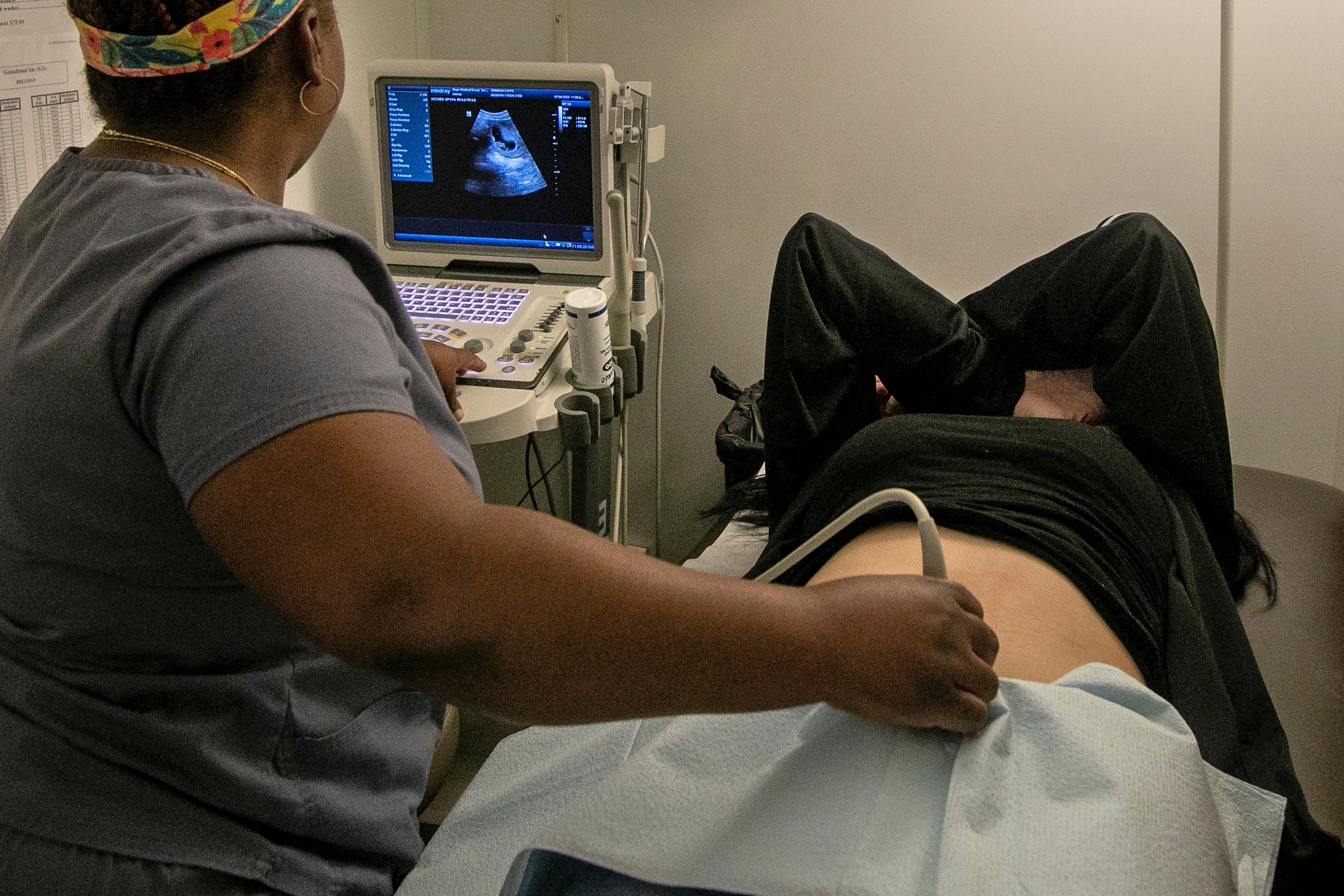
RF: Is it all or nothing? Is the idea that, if there is a law or a Supreme Court ruling saying that fetal personhood applies from the moment of conception, are there incremental steps that could happen between cases?
MZ: The end goal is probably a Supreme Court decision saying that there are constitutional fetal rights. And abortion opponents assume that if that’s true, it would be not allowed for states to have more liberal policies on abortion or IVF, even if that’s what voters there wanted.
That’s not necessarily where the strategy is heading immediately. So abortion opponents have devised ways to more incrementally recognize fetal rights in the near term. So we’re seeing legislatures passing laws saying you can sue for wrongful death when you lose a pregnancy, mandating child support during pregnancy — lots of steps to say that life in the womb has some value or some rights. But that’s all building, I think, toward the conclusion that those rights ought to be constitutional, and that those constitutional fetal rights ought to override voters’ abilities to set their own policy on things like abortion and IVF.
RF: If full fetal personhood were recognized, and full rights reside from the moment of conception, that means that you could apply a homicide statute, for example, in a case of abortion. Do I have that right?
MZ: That’s right. One of the things that I think emerges when you start really seriously thinking about fetal personhood is that there’s a lot of disagreement about what it would entail.
And one of the real battles within the pro-life movement right now is whether or not recognizing fetal personhood would require abortion to be treated as homicide, both in the sense of how harshly it’s punished and also in the sense of who is punished — so whether women would be punished for abortion as well as providers. That’s not something that’s been resolved within the movement.
RF: As we wrap up, the story, obviously, is not over. What are you watching for? What do you have your eyes on most closely now?
MZ: In the short term, there are lots of things to follow. There are a couple of big issues unfolding in the courts. There’s whether the Comstock Act is actually a backdoor ban on abortion. There’s a case on that before the courts. There’s whether Trump pulls the trigger on some kind of national restriction on Mifepristone. And then, of course, there’s a possibility of a war between the states.
Wisconsin, at the moment, is watching its own state Supreme Court resolve conflicts there. But I think people in Wisconsin also are watching to see what happens as states start fighting one another. We’re seeing red states trying to prosecute doctors in places where abortion rights are protected. So if Wisconsin becomes one of those states, it’ll be interesting to see how those conflicts begin to be resolved in the years to come.

